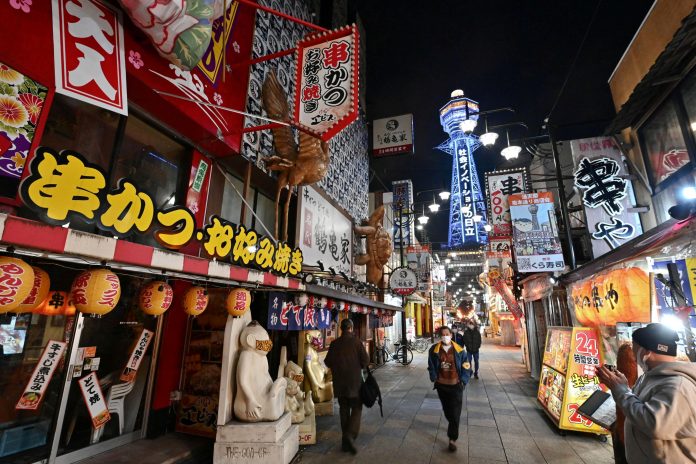Japan’s western region of Osaka cancelled on Wednesday Olympic torch events scheduled across the prefecture, as record coronavirus infections prompted its government to declare a medical emergency.
Health authorities fear a virus variant is unleashing a fourth wave of infections just 107 days before the Tokyo Olympics begins, with a vaccination drive still at an early stage.
Osaka governor Hirofumi Yoshimura said the street runs would be cancelled, adding that the medical system faced enormous strain as a more infectious variant sent cases skyrocketing among young people.
“It is almost certain that this mutant strain is highly contagious with a high transmission speed,” he said in televised remarks.
“I would like to ask all residents of Osaka prefecture to refrain from going out unnecessarily. The medical system is in a very tight situation.”
The prefecture will report more than 800 new infections on Wednesday, domestic media said, for a second straight day of record numbers. Severe cases have filled about 70 percent of hospital beds in the region.
Osaka and the neighboring prefectures of Hyogo and Miyagi started on Monday a month of targeted lockdown measures, to rein in a more virulent strain of the virus.
In recent days, Osaka’s infections have outstripped those in Tokyo, the Japanese capital and a much larger city. Even so, Tokyo’s cases are on an uptrend as well, with Wednesday’s 555 new infections standing at the highest since early February.
Emergency measures in the Osaka area could be widened to Tokyo and elsewhere if needed, Prime Minister Yoshihide Suga said on Sunday.
Japan’s vaccination drive is far behind that of most major economies, with about 1 million people being given at least one dose since February.
That figure represents less than 1% of the population, versus almost 2% in neighbouring South Korea, which started its campaign after Japan.









